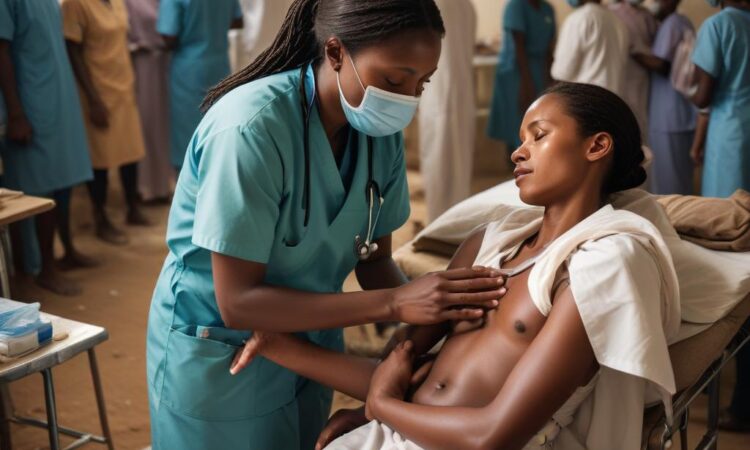The Devastating Impact of Conflict and Displacement on Health
Okay, let’s talk about something seriously heavy: the way conflict and displacement absolutely wreck healthcare systems and the people who rely on them. We’re not just talking about a few inconveniences here; we’re talking about full-blown humanitarian crises that demand urgent action.
Imagine this: your home is bombed, you’re forced to flee with nothing but the clothes on your back, and your nearest hospital is now rubble. Where do you go for basic healthcare? Where do your kids get vaccinated? Where do you get treated for a chronic illness? This isn’t a hypothetical scenario – this is the reality for millions around the world.
The impact is brutal. We’re seeing things like a surge in infectious diseases because sanitation systems collapse, routine vaccinations are interrupted, and access to clean water vanishes. People with chronic conditions like diabetes or hypertension can’t get their meds, leading to serious complications. Malnutrition skyrockets amongst children because food is scarce and supplies are disrupted. And let’s not forget the mental health toll – the trauma of war, displacement, and loss can have lasting effects.
Organizations like Doctors Without Borders (MSF) and the UNHCR (UN Refugee Agency) are on the front lines, battling against insurmountable odds. They’re the ones setting up makeshift clinics in war zones, providing essential medical supplies, and trying to bring a modicum of stability to chaotic situations. Their reports paint a grim picture – a picture of overwhelmed healthcare systems, widespread shortages, and a population struggling to survive.
Think about the sheer logistics involved. Getting medical aid into conflict zones is incredibly challenging, often requiring dangerous journeys and navigating complex political landscapes. Even when aid does arrive, the demand often far exceeds the supply. Healthcare workers themselves are frequently targeted, putting their lives at risk as they try to help others.
But it’s not just about the immediate crisis; the long-term consequences are equally devastating. Generations can be impacted by the lack of access to healthcare, leading to increased mortality rates, stunted development, and persistent health problems. The cycle of poverty and vulnerability is perpetuated, making it even harder for affected communities to rebuild their lives.
So, what can be done? First and foremost, we need sustained and increased funding for humanitarian aid organizations. We need to prioritize the protection of healthcare workers and medical facilities. We need to invest in strengthening health systems in conflict-prone regions so they are better prepared to handle emergencies. We need to address the root causes of conflict and displacement, working towards lasting peace and stability.
The scale of the challenge is immense, but it’s not insurmountable. By working together, by raising awareness, and by providing the necessary resources, we can help to mitigate the devastating impact of conflict and displacement on healthcare and ultimately, on human lives. We can’t stand idly by while people suffer needlessly. We need to act.
The stories from MSF and UNHCR paint a harrowing, yet essential, picture. They highlight the immediate needs, the long-term consequences, and the critical role of international cooperation in addressing this global crisis. We need to listen to their voices and act on the evidence they provide. Let’s not just acknowledge the problem, let’s actively work towards solutions.
This isn’t just about numbers and statistics. These are real people, real families, real lives that are being irrevocably impacted by conflict and displacement. Their suffering demands our attention, our compassion, and our unwavering commitment to action. The time to act is now.
We can all play a part, whether it’s through donating to reputable aid organizations, advocating for policy changes, or simply spreading awareness about this critical issue. Let’s make a difference. Let’s stand in solidarity with those who are suffering.
The human cost of conflict and displacement is far too high. Let’s work together to build a world where everyone has access to the healthcare they need, regardless of their circumstances.

